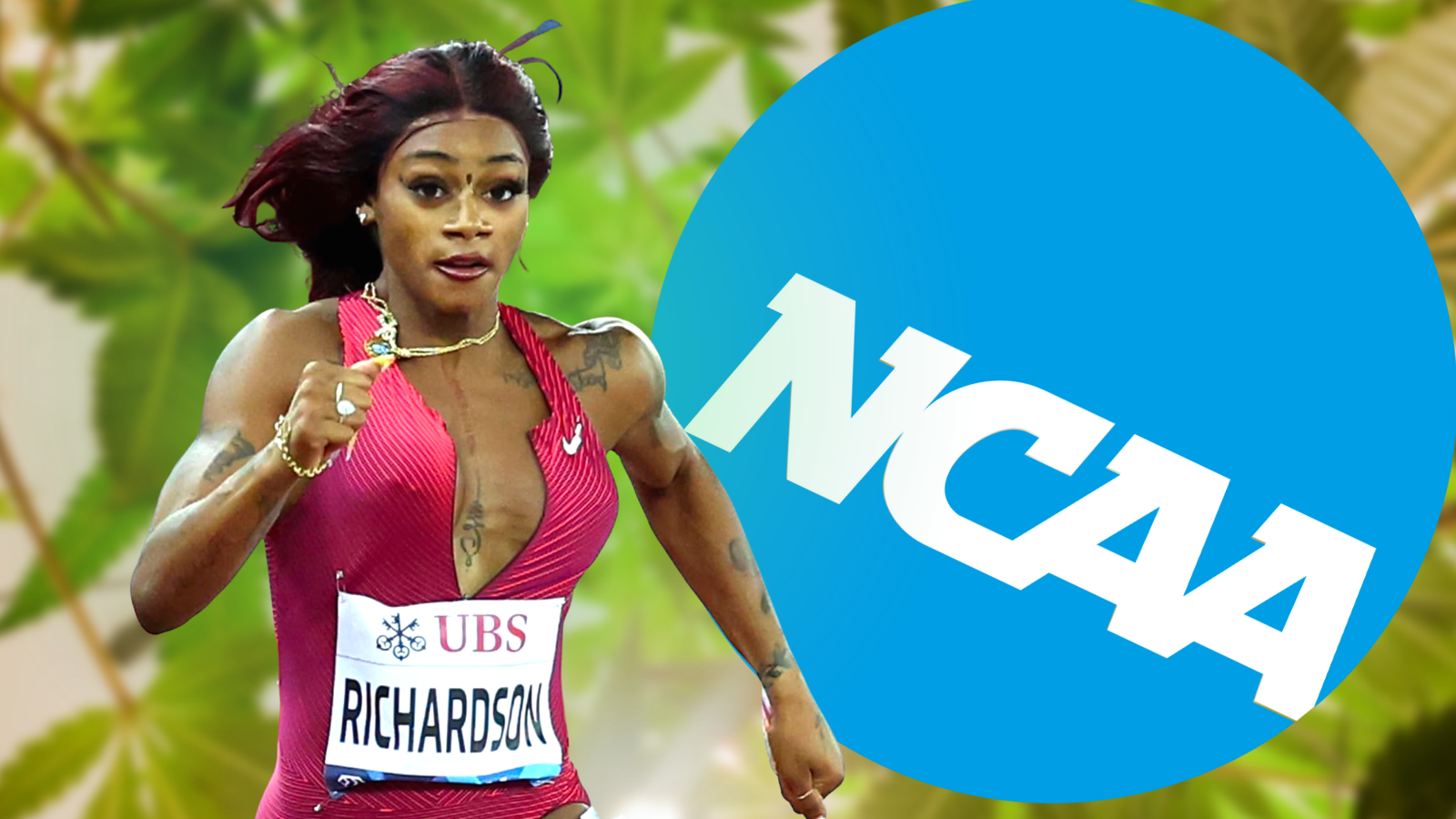Over the past decade, medical and recreational marijuana has become more widely accepted, both culturally and legally. But in sports, pot can still get a bad rap.
Recreational weed has been the source of disappointment and disqualifications for athletes—like Sha’Carri Richardson, a U.S. sprinter poised to compete in the Tokyo Olympics—after testing positive for marijuana.
Sha’Carri Richardson’s Case: Disqualification and Controversy
Sha’Carri Richardson’s dreams of representing her country in the Tokyo Olympics were shattered when she tested positive for marijuana. The news sparked a heated debate about the fairness and relevance of cannabis testing in sports. Many argued that marijuana should not be classified as a performance-enhancing drug, and Richardson’s disqualification brought the issue to the forefront.
The NCAA’s Changing Stance on Marijuana
Recognizing the need for a reassessment of its drug policies, the NCAA Committee on Competitive Safeguards and Medical Aspects of Sports has proposed removing cannabis from the banned drug list. The committee’s findings indicate that marijuana does not enhance athletic performance, and testing should focus on substances with proven performance-enhancing properties.
Medical and Scientific Perspectives: Challenging the Stereotypes
Medical experts and scientists have long argued that marijuana’s impact on athletic performance is minimal. Studies suggest that cannabis use does not offer any competitive advantage and should not be treated as a substance that warrants punishment. By limiting testing to performance-enhancing drugs, the NCAA would align its policies with scientific evidence.
Shifting Attitudes in Sports: The MLB and NFL Examples
The NCAA is not alone in reconsidering its stance on marijuana. Major League Baseball (MLB) removed marijuana from its list of “drugs of abuse” in 2019, acknowledging the changing social and legal landscape. Similarly, the National Football League (NFL) halted THC testing for players during the off-season in 2021, reflecting a more lenient approach towards cannabis use.
Top Reads: Players welcome new NBA cannabis investment opportunities
The NCAA’s Evolving Approach to Marijuana Testing
The NCAA has already taken steps towards a more progressive approach. In recent years, the association raised the threshold for THC—the primary psychoactive compound in cannabis—in its drug tests. This adjustment reflects a recognition that athletes may use marijuana recreationally without it significantly impacting their performance during competitions.
The Significance of the NCAA’s Decision
If the NCAA removes cannabis from its banned drug list, it will have a profound impact on college athletes. It will give them the freedom to make personal choices without facing harsh consequences for marijuana use. Furthermore, the NCAA’s decision may serve as a catalyst for other sports organizations to reevaluate their drug policies, promoting a more balanced and evidence-based approach.
Conclusion
The changing perception of marijuana in society has prompted the NCAA to reevaluate its stance on cannabis testing. Sha’Carri Richardson’s case highlighted the need for a nuanced approach, considering the impact of marijuana on athletic performance. By embracing a more lenient policy, backed by medical and scientific evidence, the NCAA can ensure fair competitions while respecting athletes’ personal choices.
FAQs:
- Will the NCAA’s decision affect professional sports leagues?
- The NCAA’s decision may influence professional sports leagues to reconsider their own drug policies. However, each organization operates independently, and any changes would require separate deliberation.
- What are the potential health risks of marijuana use for athletes?
- While marijuana may have certain health risks, such as respiratory issues or impaired coordination, it is important to distinguish between recreational use and use during athletic competitions. The focus should be on the impact of marijuana on performance rather than general health concerns.
- How will this decision impact the eligibility of college athletes?
- If cannabis is removed from the banned drug list, college athletes will no longer face disqualification solely for marijuana use. It will provide them with more freedom to make personal choices without severe repercussions.
- Are there any legal concerns surrounding the use of marijuana in sports?
- The legal landscape regarding marijuana use varies across jurisdictions. While some regions have legalized both medical and recreational use, others maintain stricter regulations. Sports organizations need to navigate these legal complexities while formulating their drug policies.
- What are the arguments against removing marijuana from the banned drug list?
- Some argue that marijuana use goes against the spirit of fair play and sportsmanship. They believe it may send the wrong message to young athletes or contribute to a culture of substance abuse. These concerns warrant careful consideration in the ongoing debate.



COMMENTS